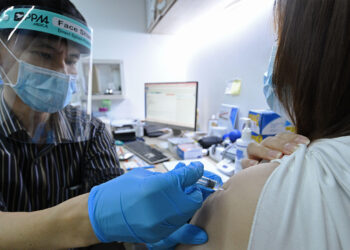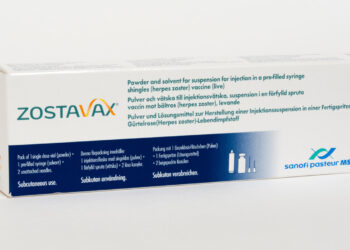TOPLINE:
Increased loneliness during adolescence is associated with various health and well-being outcomes, including an increased risk for asthma and depression, in adulthood.
METHODOLOGY:
- Researchers conducted a longitudinal study to examine the association between increased loneliness over 1 year during adolescence and its subsequent health and well-being outcomes in adulthood.
- They utilized data from a nationally representative sample involving 20,745 US adolescents (mean age, 15.04 years; 49.7% girls; 65.98% White) initially surveyed in 1994-1995, of whom 11,040 and 9003 were analyzed over average follow-up periods of 11.37 and 20.64 years, respectively.
- Loneliness in adolescents was assessed at prebaseline (1994-1995) and baseline (1996) through the self-reported frequency of feeling lonely during the past 7 days, with response options ranging from “never” to “most of the time.”
- The associations between changes in loneliness and 41 health and well-being outcomes, including dimensions of physical health, health behavior, mental health, psychological well-being, social factors, and civic and prosocial behaviors, were evaluated.
TAKEAWAY:
- Increased loneliness during adolescence was associated with an increased likelihood of asthma (relative risk [RR], 1.24; P = .041) and depression (RR, 1.25; P = .010) diagnosis in adulthood.
- Increased loneliness was also associated with an increased likelihood of posttraumatic stress disorder diagnosis (odds ratio, 1.84; P = .002).
- Increased loneliness was associated with worse social outcomes, such as reduced quality of romantic relationship and increased perceived discrimination, and worse psychological well-being outcomes, such as decreased happiness, job satisfaction, and optimism.
- No significant associations were found between increased loneliness and health behaviors or civic and prosocial behaviors.
IN PRACTICE:
“Our study likely captures early risk indicators for adverse health outcomes, highlighting pathways through which loneliness may gradually influence health outcomes over time,” the authors wrote. “Our findings suggest that ongoing development and application of interventions and policies aimed at reducing loneliness is a promising method of reducing the risk of some adverse health/well-being outcomes for our adolescent and emerging adult populations,” they added.
SOURCE:
This study was led by Eric S. Kim, PhD, of the University of British Columbia in Vancouver, British Columbia, Canada, and Renae Wilkinson, PhD, of the Institute for Quantitative Social Science at Harvard University in Cambridge, Massachusetts. It was published online on January 20, 2025, in the Journal of Adolescent Health.
LIMITATIONS:
This study acknowledged potential confounding by unmeasured variables and reverse causality, though these were considered unlikely. A single-item measure for assessing loneliness limited the ability to differentiate between the types of loneliness. The use of data for some outcomes in two separate waves for analysis potentially introduces a 10-year gap in the measure of some outcomes.
DISCLOSURES:
This study was supported by grants from the Michael Smith Health Research BC, the Canadian Institutes of Health Research, and the John Templeton Foundation. One author reported receiving licensing fees from Flerish, Inc. and Flourishing Metrics.
This article was created using several editorial tools, including AI, as part of the process. Human editors reviewed this content before publication.
Source link : https://www.medscape.com/viewarticle/loneliness-during-adolescence-linked-health-outcomes-2025a10001sk?src=rss
Author :
Publish date : 2025-01-24 10:34:39
Copyright for syndicated content belongs to the linked Source.














